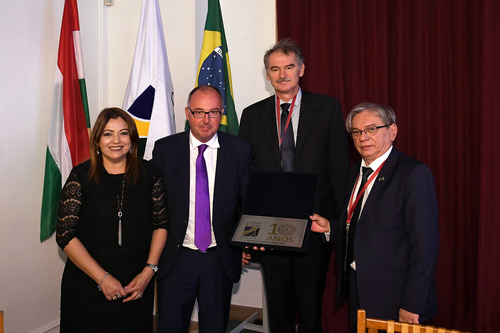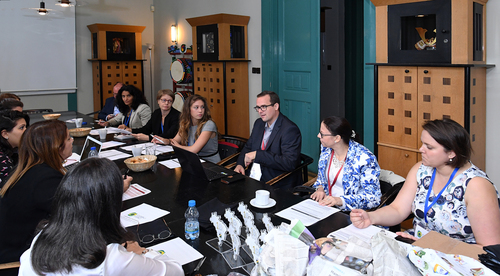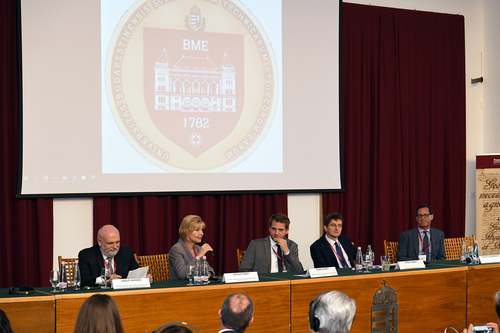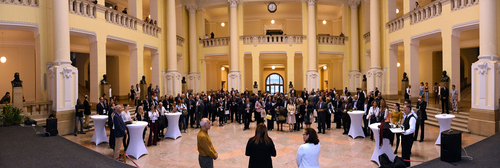2018. October 11.
BME hosted a large scale international conference. The event attracted high ranking officials, university leaders, scientists and professors from 24 countries in 5 continents.
“The regard for Brazil’s universities is continuously rising: their exemplary cooperation, which also extends beyond the borders of Brazil, creates a system that BME and the other higher education institutions of Hungary are eager to join,” János Józsa, BME’s rector and president of the Hungarian Rectors’ Conference (MRK) said in his opening speech in the university’s banquet hall at the international conference titled ‘Global universities in the XXI century: characteristics, trends and main challenges’ organized jointly with the Coimbra Group (Coimbra Group of Brazilian Universities, CGBU) comprising a large number of Brazilian universities.
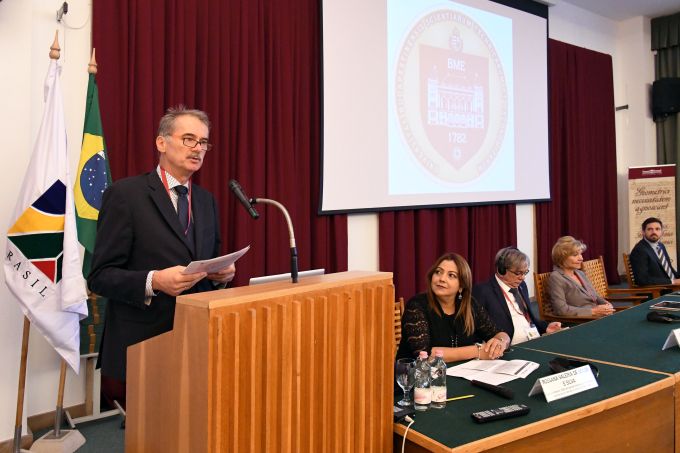
Reminiscing about his trip to Brazil, the academic praised the hospitality of his Latin American hosts adding that he had heard much about the planners of Brasilia as a young civil engineer. “At the time, the city was defined as the symbol of a bright future,” the rector recalled remarking that it is not only their passion for football but also their dedication to knowledge that connects the two nations and said he was very pleased to welcome the guests representing Brazil’s prestigious higher education institutions as their host.
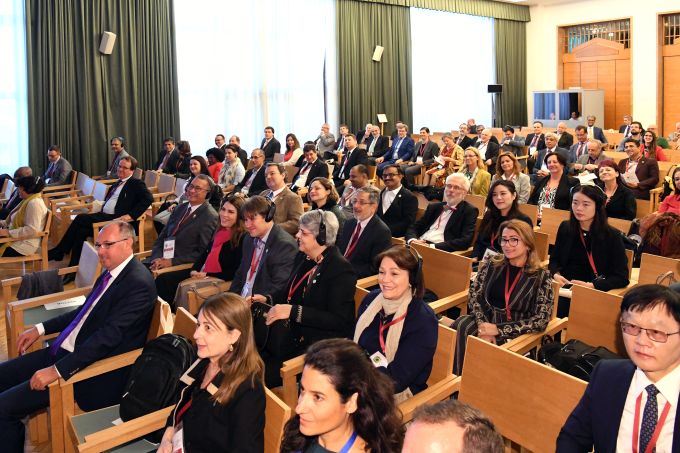
|
Brazil and Hungary’s ties in the area of higher education strengthened after the Brazilian government had supported the education of 2300 students (including nearly 800 at BME) for 3 years in Hungary in their Science Without Borders programme while thousands of students (including several hundred participants, many of them from Brazil, studying at BME) have come to study at Hungarian universities since 2016 under the Stipendium Hungaricum Scholarship Programme launched by Hungary’s government in 2013. (Editor note: bme.hu has reported on several occasions on the aspects of the Brazilian government programme related to BME including the launch of Bachelor courses for Latin American students, the closure of the project and the students’ farewell ceremony at BME.) The Budapest University of Technology and Economics is one of the preferred choices for Brazilian students interested in English language courses in Europe, partly explained by the university’s high regard, attractive course selection and the value for money aspect of the training offered. It is not the first time Latin American university leaders have visited Hungary at the invitation of the Hungarian Rectors’ Conference: this June, one of Brazil’s most prominent associations with a membership of 46 universities, the Brazilian Association of Rectors of State and Municipal Universities (ABRUEM) arrived in Hungary, visiting BME as part of their trip while CGBU, established in 2008 and currently consisting of 77 Brazilian universities, was our guest in September. The group importantly aims to improve the internationalisation of its members and broaden their scientific and cultural relations. CGBU held its XI general assembly at BME followed by the X international conference.
The meeting attracted internationally renowned speakers from 24 countries in five continents who discussed the connection between universities and globalization as well as technology transfer, the impacts of geopolitical changes and the strategies of leading higher education institutions.
The event was organized by the Hungarian Rectors’ Conference and the Coimbra Group with the involvement of BME’s Directorate for International Affairs and Rector’s Cabinet.
|
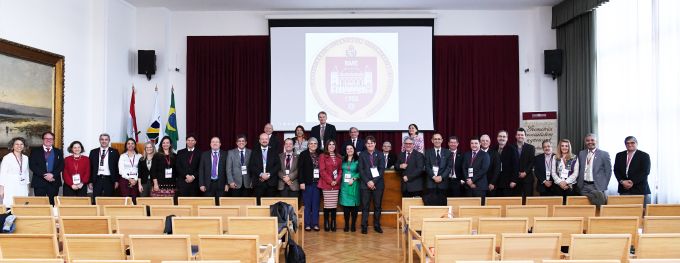
Levente Nagy, vice-minister for foreign affairs spoke about the importance of partnerships formulating in higher education bringing the example of relations in the field of science while stressing the promotion of increased higher education cooperation.
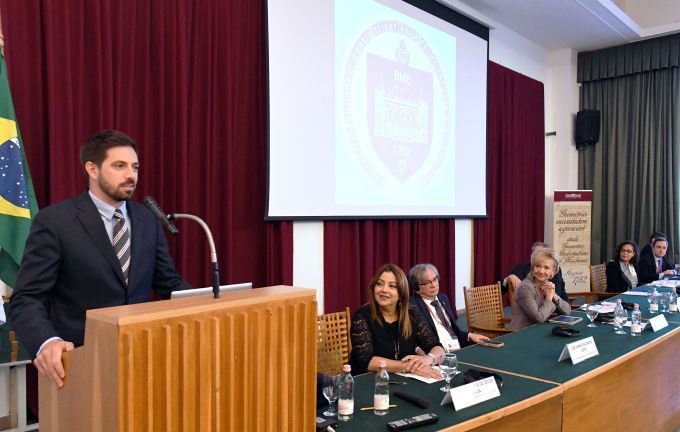
Balázs Vince Nagy, BME’s vice-rector for international affairs and chair for the opening ceremony, welcomed the guests on behalf of the organizers. He emphasized that new perspectives had opened up in the growing ties between Hungary and Brazil’s universities, referring to the establishment of the Society of Hungarian Professors in Brazil two years ago: one of the professors of the University of Sao Paulo (USP) is a descendant of one of BME’s former rectors.
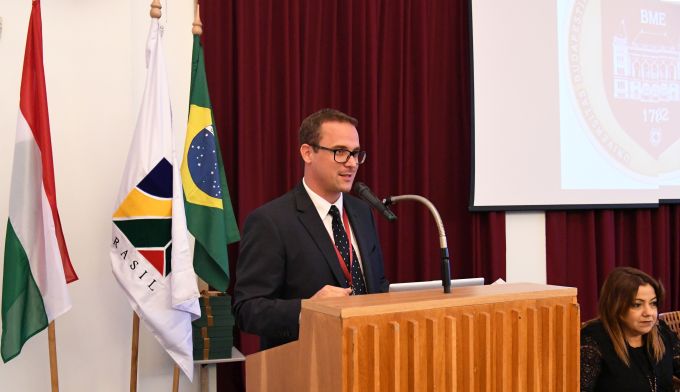
Katalin Nagy, president of the International Committee of the Hungarian Rectors’ Conference, quoting József Bódis, state secretary for education, said: “upon their return to their home countries, foreign students studying in Hungary may represent Hungary as cultural ambassadors”. Referring to statistical figures, she said she hoped that the number of young Latin American people studying in Hungary would be even higher in the future. She concluded by mentioning a great example for developing professional relations: Hungarian language and culture courses have been offered by two prominent Brazilian universities in recent years.
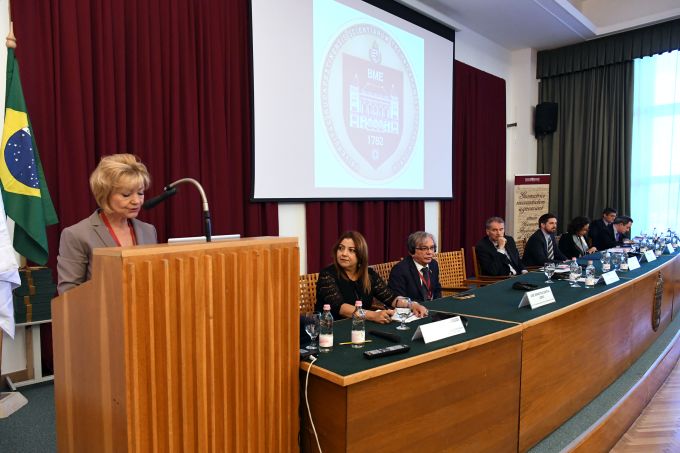
Maria Laura de Rocha, Brazil’s ambassador to Hungary said that the conference provided opportunities not only for networking but also the knowledge to address global problems extending beyond national borders including the energy crisis and environmental issues and that universities play a key role in this process. She said that the development of international cooperation is positively demonstrated by meetings such as the discussions between university representatives and government officials last year that build on the encouragement of collaboration between small and medium sized enterprises.
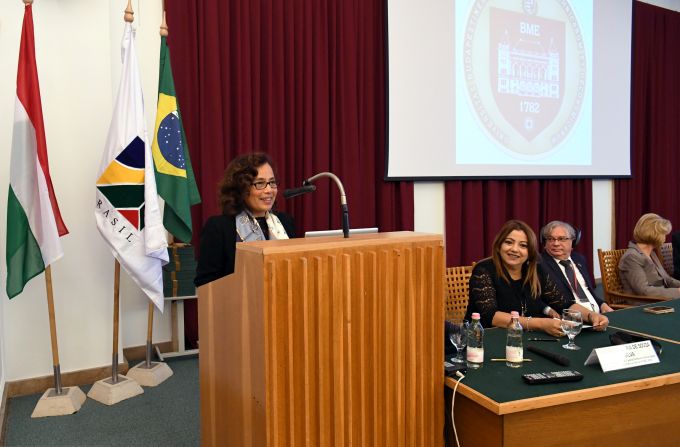
Gabriel Felipe da Fonseca Dizner, international advisor and representative of the Brazilian Ministry of Education said the conference being held outside his country had a symbolic importance: “all this shows the strong ties between these two countries,” highlighting in particular the Stipendium Hungaricum programme. Mr. Dizner showcased the measures taken by Brazil’s education policy makers to simplify higher education matters. As he stressed, they have taken numerous steps recently to introduce general standards in education and the related administration while ensuring the autonomy of universities.
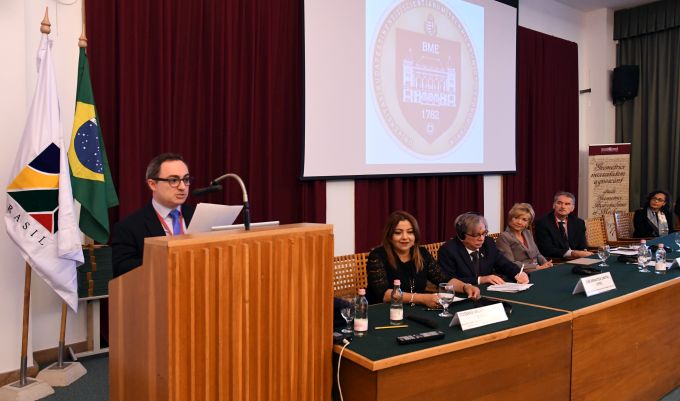
José Ricardo de Santana, director of Brazil’s National Council for Scientific and Technological Development (CPNq) and representative of the Ministry of Science, Technology, Innovation and Communications emphasized in his welcome speech that his organization believes it is important to look at the issues of education, research and innovation in the context of cooperation. He added that the conference offers an excellent opportunity for that.
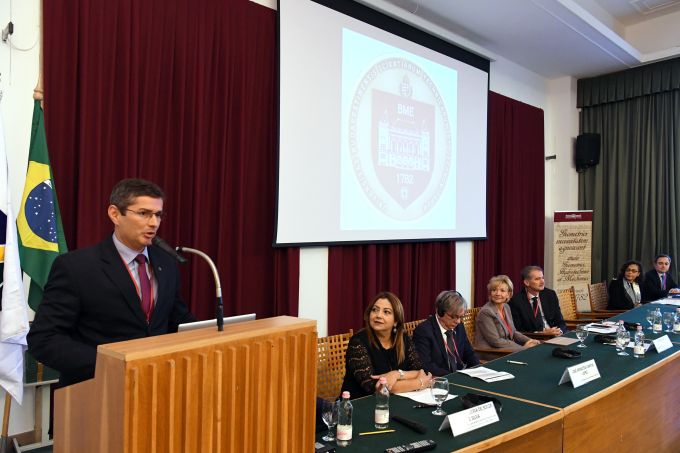
José Arimatéia Dantas Lopes, rector of the Federal University of Piau (UFPI) and CGBU’s outgoing president reminded us, while speaking about the past of Brazilian universities, that the internationalisation of these institutions started as early as the ‘50s and has remained very important to this day.
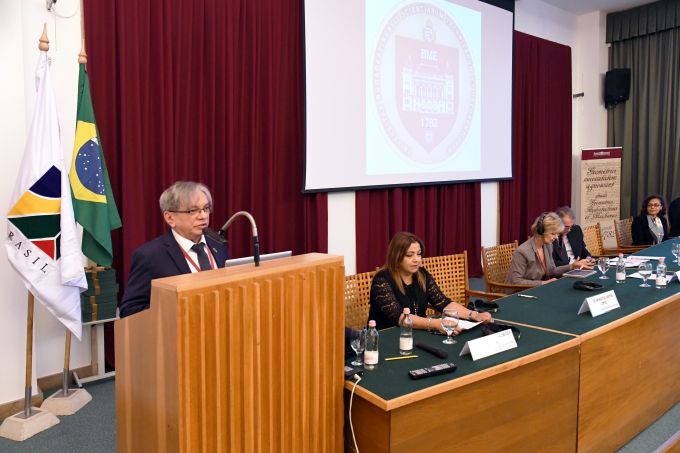
On the fourth day of the conference, János Józsa, rector and Rossana Valéria de Souza e Silva, CGBU’s executive director signed a cooperation agreement as part of the formal closing ceremony.
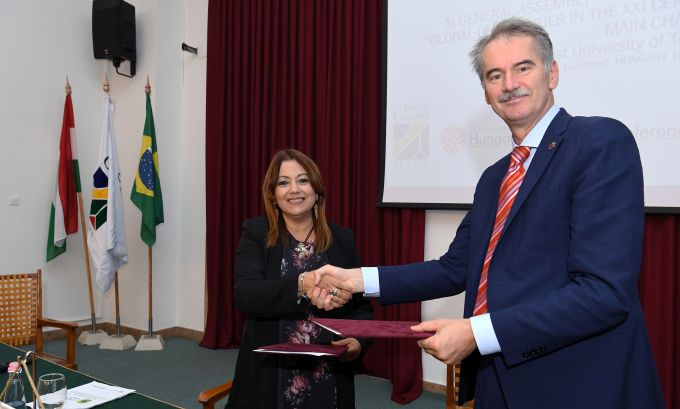
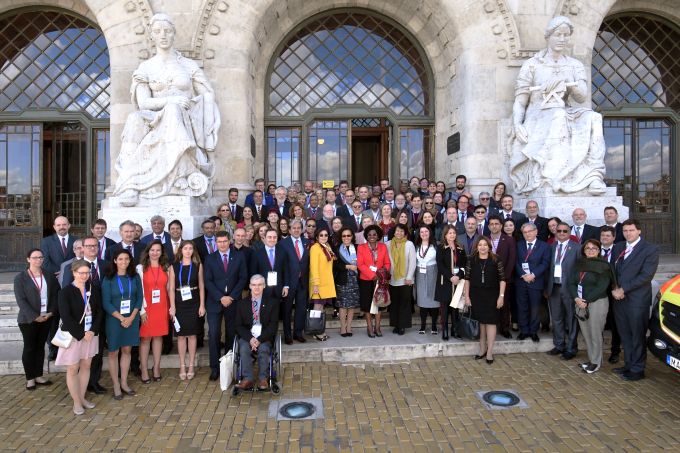
HA-GI
Photo: János Philip



